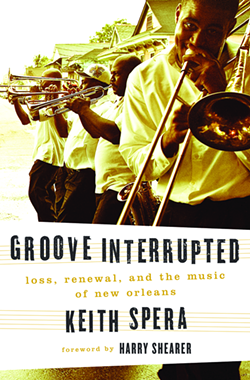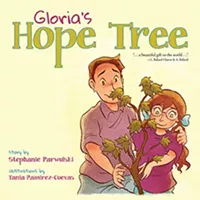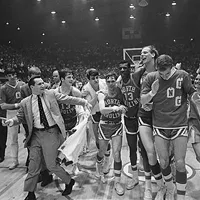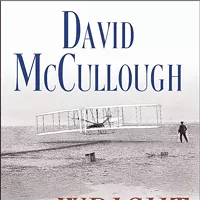Book reviews: Keith Spera's Groove Interrupted, John Swenson's New Atlantis
Big Easy musicians' ongoing fight for their culture
By John GroomsGroove Interrupted: Loss, Renewal, and the Music of New Orleans by Keith Spera (St. Martin's Press, 272 pages, $26.99).
New Atlantis: Musicians Battle for the Survival of New Orleans by John Swenson (Oxford University Press, 320 pages, $27.95).
New Orleans has been prone to big trouble since it was built in the early 1700s on a swamp, tucked into a spot surrounded by the Gulf of Mexico, the Mississippi River and Lake Pontchartrain. Fires, yellow fever, pirates, floods too numerous to mention (except for 1927's, which everybody mentions), hurricanes (including Hurricane Katrina), both the British and U.S. armies, big oil companies, the Army Corps of Engineers, and the 2010 BP drilling rig explosion— all, at one time or another, have put the big hurt on America's most fascinating, culturally diverse city. Still, New Orleans has kept on keepin' on, by virtue of its attraction as a tourist mecca, and its important role in America's and the world's music culture. As the de facto capital of the hot, swampy section of America that gave rise to jazz, the blues and rock 'n' roll, New Orleans is legendary among music fans all over the planet.
A city doesn't survive all its disasters without being tough. Since Katrina, New Orleans' musicians have shown how tough, by helping other musicians move back, or, as in the case of Fats Domino, relocate within the city. Two current books look at New Orleans musicians and how and what they've done since the levees broke. Both books are well-written, heartbreaking, and encouraging — encouraging for the glimpse they give of artists helping artists, never mind which particular brand of N'Awlins music the helpers or the helped like to play.
Keith Spera, who writes about music for New Orleans' Times-Picayune, reports with empathy and even intimacy on the post-Katrina lives of some of his city's musical greats in Groove Interrupted, essentially a series of individual portraits. Fats Domino is tooling around New York, promoting a tribute CD for Katrina victims. Jazz trumpeter Terence Blanchard, who has emerged as a post-Katrina hometown hero, agonizes over his city and how to express its essence in music. Aaron Neville comes back to New Orleans for the first time since the floods to bury his wife. And Alex Chilton, of Boxtops, Big Star and 1980s "left of the dial" scene fame, goes about his business in a modest home in the Treme neighborhood. Other New Orleans music legends that get the Spera treatment include Gatemouth Brown (master of many a great night at the Double Door Inn in Charlotte), legendary writer/producer/performer Allen Toussaint, best-selling rapper Mystikal, the Rebirth Brass Band, Pete Fountain, Juvenile, and the 2006 New Orleans Jazz & Heritage Festival. With the lone exception of the inclusion of more information than I needed about Aaron Neville's wife's funeral, Spera's collection of portraits is tightly written and brimming with good humor, despair, resolve and a palpable love for New Orleans.
New Atlantis, by longtime music journalist John Swenson, who has lived in New Orleans since 1999, is an edgier, angrier look at what happened to the city's musicians — and its musical traditions — after Katrina and the Army Corps of Engineers' shoddy work got through with them. Swenson reminds us that the city's musicians — the surviving musicians — were scattered around the country for a while; their returns have been neither easy nor always welcomed by the Crescent City's corrupt, blatantly racist, dumb-as-bricks "city leaders."
In Swenson's telling, the reinstatement of New Orleans' musical culture has been a hard, hard labor of love that is ongoing, often in the face of increased violence and official indifference. Their persistence and talent shines through in their belief that most of them are doing the best work they've ever produced. Swenson interviews a slew of the city's players, up-and-comers and veterans alike. Dr. John and Cyril Neville know they were fortunate to have established names, and loving friends to help them. But even they have problems getting gigs in town. Swenson's portrait of young hotshot Troy "Trombone Shorty" Andrews, as he copes with both newfound fame and a troubled relative, could be the most moving part of the book. The least moving part would be the book's scattershot organization, along with overly detailed descriptions of shows and other note-dumping fillers. Still, New Atlantis has so many great verbal snapshots of that city and folks who are still struggling to save it, this is still a recommendation.
Speaking of...
Latest in Books
More by John Grooms
Calendar
-

ANNIE LEIBOVITZ / WORK @ Mint Museum Uptown at Levine Center for the Arts
-

Trap & Paint + Music Bingo @ Blush CLT
-

Trap & Paint (Hookah Edition) @ Blush CLT
-

BookTok Sensation RC Luna Comes to Charlotte – Author Signing Event @ The Trope Bookshop
- Sat., Aug. 30, 11 a.m.-1 p.m.
-

R&B Sip & Paint + Comedy Show @ Blush CLT

















